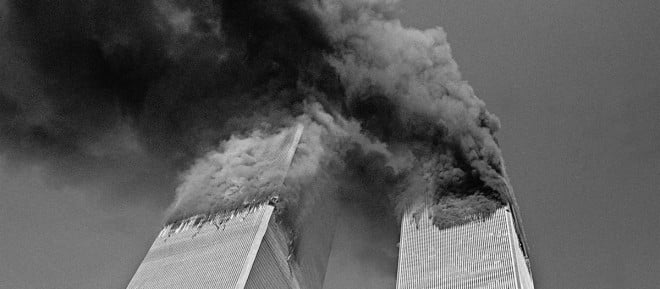Beyond the rubble: after the 9/11 anniversary, security and imagination
That the attacks didn’t seem to change American life has troubled many commentators
Share
 The Germans coined a term for the early attempts by their writers to create stories and novels after the Second World War: rubble literature, or trummerliteratur. Back in the fall of 2001, anyone might have predicted that 9/11 would generate its own version of the genre, a period of fiction (and maybe movies, music and painting) that tried to come to terms with the attacks.
The Germans coined a term for the early attempts by their writers to create stories and novels after the Second World War: rubble literature, or trummerliteratur. Back in the fall of 2001, anyone might have predicted that 9/11 would generate its own version of the genre, a period of fiction (and maybe movies, music and painting) that tried to come to terms with the attacks.
There have been worthy attempts—from Bruce Springsteen’s album The Rising, to Ian McEwan’s novel Saturday, to director Paul Greengrass’s movie United 93. But there’s been no sustained outpouring of art to reshape the way we see our situation in the post-Sept. 11 world. Maybe that’s because our world really didn’t need re-imagining in the way we thought. Millions of Germans after World War II actually lived in ruins; unless you visited lower Manhattan, the rubble of 9/11 was something you saw on TV.
The fact that the attacks didn’t seem to change American life all that much troubled many commentators around the 10th anniversary of that horrible day. “Sept. 11, we naively thought, would create a new national will to do great things. It would bring renewal, clarity, service and purpose to a somnolent country,” Andrew Cohen writes in today’s Ottawa Citizen. “Ten years later, it hasn’t.”
But Cohen does allude to what has actually changed in the lives of many Americans: “Instead of building roads, schools and airports, [former president George Bush] built metal detectors and the apparatus of fear, which has made Americans safer (those terrorist attacks never happened) but not necessarily stronger.”
Indeed, the extension of security measures meant to prevent any future attack has been the main sustained change brought about by the fall of the World Trade Center towers. Here in Canada, a report tells us that an extra $92 billion has been spent on security as a result. And the Prime Minister recently said he’ll use his new majority to permanently reinstate extraordinary antiterrorist police powers that were brought in by the Liberals after 9/11, but were never used before they lapsed in 2007.
Calling for Stephen Harper to explain why these powers are needed, this Winnipeg Free Press editorial takes a cautious, balanced position: “For all the terrorism-related arrests and prosecutions since 2001, not once in the five years they existed were preventive arrests and investigative hearings held. This shows Canadians that authorities can wield such powers prudently. But it also legitimately raises the question of necessity.”
There’s some evidence that the pervasive post-9/11 fear is lifting, which could make sacrificing individual rights to collective security harder to sell. The New York Times reported last weekend on its poll finding that 38 percent of New Yorkers think another terrorist attack on the U.S. is likely within months, way down from 57 percent five years ago. Still, 83 per cent of Americans, even ten years on, remain convinced their country will always face a terrorist threat.
Perhaps the way terrorism makes us afraid is the factor that fiction writers should find ways to work into their stories. Arguably the preeminent German rubble-writer, Heinrich Boll, who won the Nobel Prize in 1972 and died in 1985, wrote a novel called The Safety Net in 1979 that conveyed the claustrophobic web of police vigilance and electronic surveillance with which his country responded to the Baader-Meinhof Gang’s terrorism in the ’70s. (It’s especially worth revisiting these days, and a new edition features an introduction by Salman Rushdie.)
Those nightmarish images of the rubble of ground zero made us think we needed war metaphors to understand what had happened. But I think Boll’s late-career insights into a fearful society in danger of becoming entangled in an invisible net of its own devising might be closer to what we need to get our heads around a decade later.